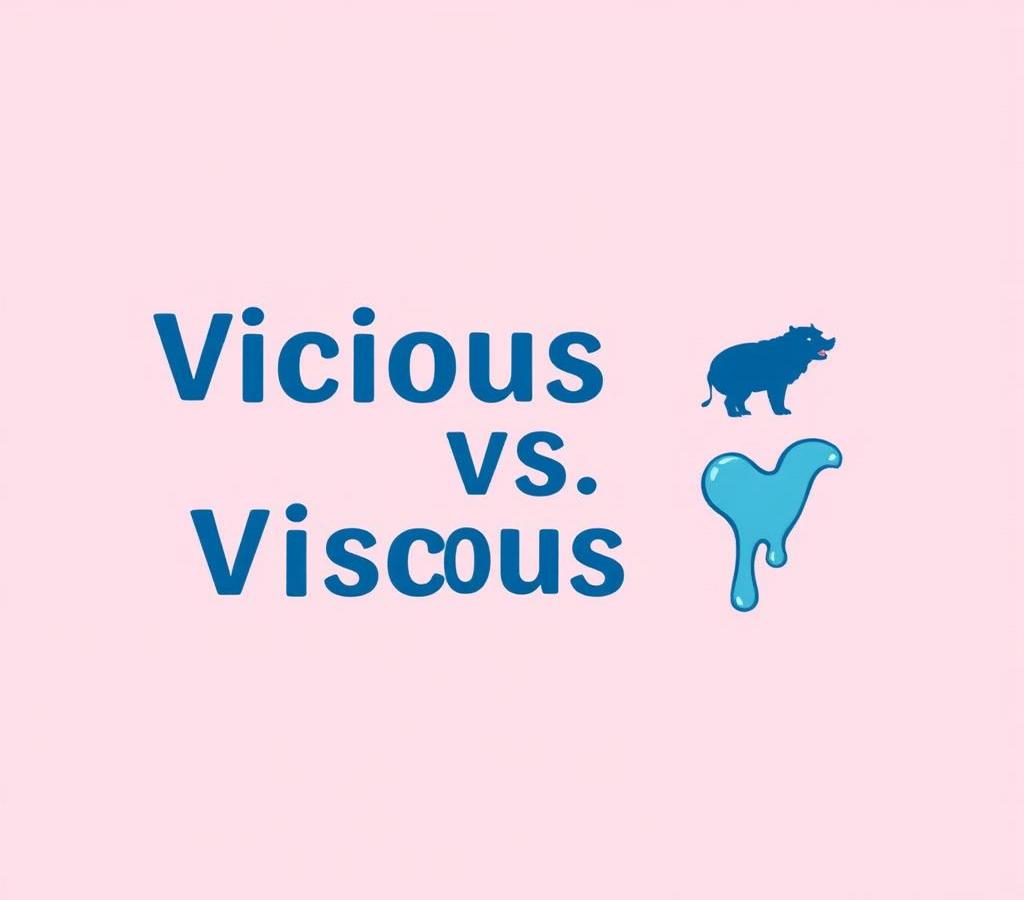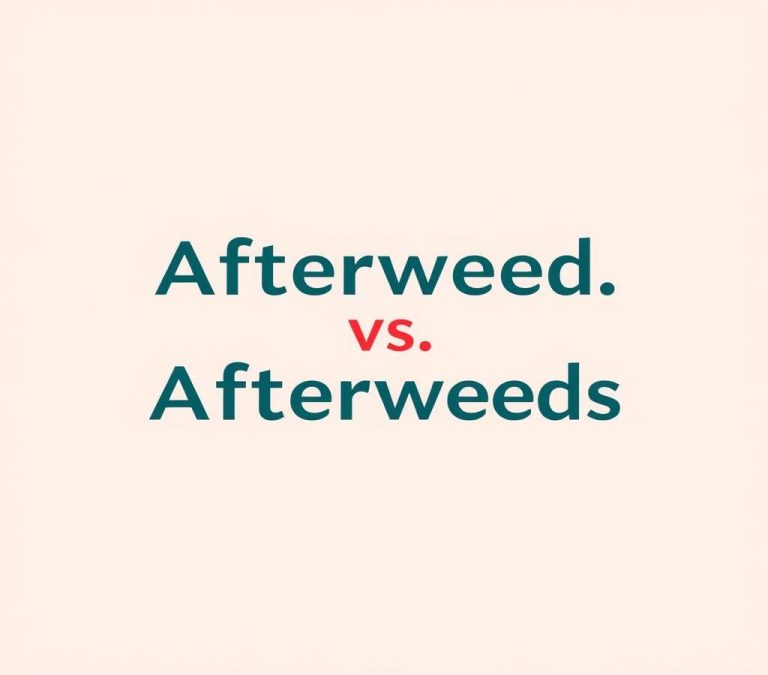Vicious vs Viscous: Grammar & Usage Explained
Understanding words that sound similar but have different meanings can be tricky. “Vicious” and “viscous” are two such words. “Vicious” describes something cruel or violent, while “viscous” refers to something thick and sticky, like honey. Using these words correctly is important to convey the right meaning in your writing. This article will help you understand the differences and how to use each word appropriately.
Quick Answer
Vicious refers to something that is intentionally cruel or violent, whereas viscous refers to a thick, sticky liquid. To use them correctly:
- Use vicious to describe actions or behavior (e.g., “a vicious attack”).
- Use viscous to describe liquids (e.g., “honey is a viscous fluid”).
Why There is Confusion
It’s easy to see why people get confused between the words “vicious” and “viscous.” Both words sound somewhat similar and are close in spelling, but they have vastly different meanings. “Vicious” refers to something evil or savage, whereas “viscous” describes a thick and sticky consistency. The confusion often arises when people are unsure about the context in which each word should be used. Understanding the meanings and differences is key to using these words correctly.
What Does Vicious Mean?
“Vicious” is an adjective that typically describes something harmful, evil, or cruel. It can refer to a person, animal, action, or even speech that is dangerously aggressive or mean-spirited. The word is often used in an emotional or moral context to describe behavior or attitudes that are harmful to others.
What Does Viscous Mean?
On the other hand, “viscous” is also an adjective but it has an entirely different meaning. It describes a fluid’s thickness and stickiness. When a liquid is viscous, it flows slowly because of its thickness. Examples include honey, syrup, and certain types of glue. This term mainly finds its usage in scientific, culinary, or industrial contexts.
Differences Between Vicious and Viscous
Differences in Meaning
The primary difference between these two words lies in their meanings:
- Vicious: Refers to something evil, cruel, or savage. It carries an emotional or moral weight and is often used to describe behavior or characters.
- Viscous: Refers to a thick and sticky consistency of a fluid. It is a term frequently used in scientific or practical contexts to describe liquids that flow slowly.
Differences in Parts of Speech
Both “vicious” and “viscous” are adjectives, but:
- Vicious: This adjective modifies nouns that pertain to morality, ethics, and behavior.
- Viscous: This adjective modifies nouns related to physical properties, especially fluids.
Differences in Contextual Usage
The contexts in which these words are used also differ significantly:
- Vicious: Commonly appears in descriptions of negative and harmful actions or characteristics. For example, you might hear about a “vicious attack” or a “vicious rumor.” This word is often used in literature and news reports to convey severity and danger.
- Viscous: Used primarily in scientific, industrial, or culinary contexts. For example, you might hear about “viscous liquids” or “viscous materials,” conveying the idea that the liquids or materials are thick and do not flow easily.
Synonyms for Vicious
To further clarify the meaning of “vicious,” it can be beneficial to know some synonyms. These include:
- Cruel
- Malicious
- Brutal
- Savage
- Malevolent
Using these synonyms in place of “vicious” can help avoid confusion and improve clarity.
Synonyms for Viscous
Similarly, there are several synonyms for “viscous” that may help you convey your meaning more clearly:
- Thick
- Sticky
- Gluey
- Syrupy
- Gooey
These terms can be used interchangeably with “viscous” to describe the physical properties of a liquid.
Examples of Correct Usage
To ensure proper usage of “vicious” and “viscous,” here are some examples:
- Vicious: “The dog gave a vicious growl, scaring everyone around.”
- Viscous: “The batter was too viscous to pour smoothly into the pan.”
- Vicious: “He spread vicious lies about his coworker to get ahead.”
- Viscous: “The lava was so viscous that it moved slowly down the hillside.”
- Vicious: “The boxer was known for his vicious punches.”
- Viscous: “Artists often use viscous paint to add texture to their work.”
Conclusion
In summary, understanding the difference between “vicious” and “viscous” is crucial for clear and precise communication. “Vicious” denotes something evil, cruel, or harmful, and is often used in emotional, moral, or behavioral contexts. Meanwhile, “viscous” describes the thick and sticky consistency of a fluid, primarily used in scientific or practical contexts. By recognizing these differences in meaning, parts of speech, and contextual usage, you can ensure that you are using the right word in the right situation. Furthermore, familiarizing yourself with synonyms for each word can help you better convey your intended message.







